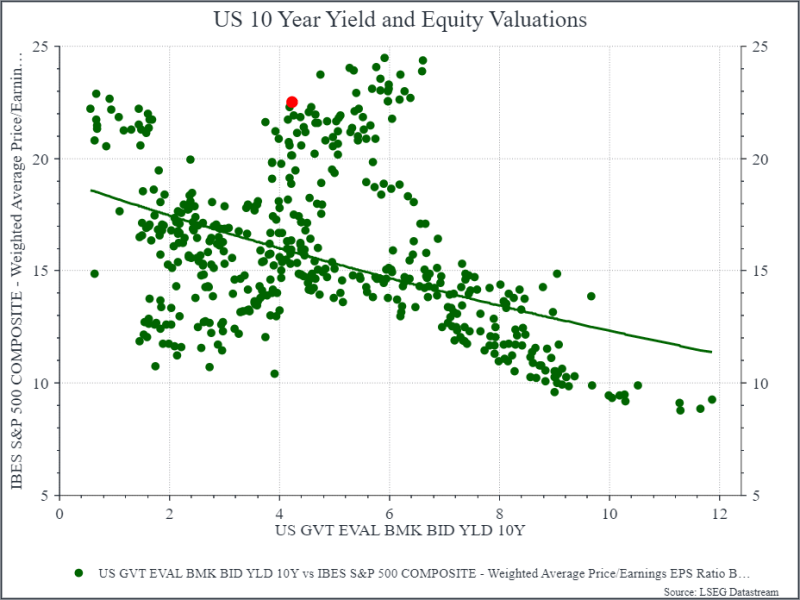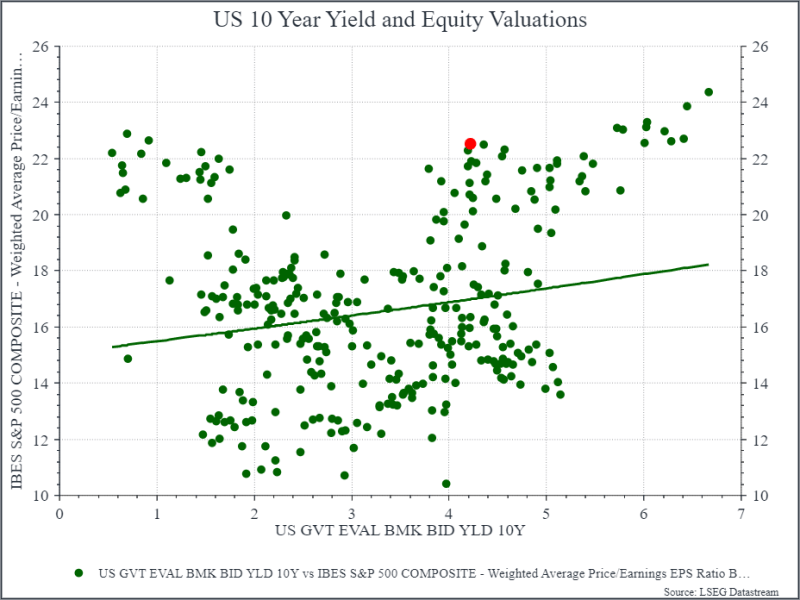With US inflation currently sitting at 2.9%, and the Federal Reserve likely to lower rates this month, we may see inflation above the central banks 2% target for some time. We wanted to think about what this could mean for equities and equity valuations.
The chart below compares the valuation of US equities and the consumer price inflation over the past forty years. Each dot represents a monthly observation. The y-axis is the forward price/earnings ratio and the x-axis shows annual inflation.
The short answer from this chart is that there’s not much of a relationship between inflation and equity valuations. Provided inflation is fairly low (say between 2 and 4%), the precise level of inflation doesn’t seem to have had much impact on equity valuations. The red dot shows the current reading – at the higher end of valuations, as we’ve discussed before, but not an outlier on either valuations or inflation. So, even if we do see a period with inflation above 2%, that might not hit equity valuations.

Having drawn a blank with inflation, we turned to bond yields. In theory, bond yields should have more of an impact on equity valuations. Government bonds should be some sort of a risk-free asset that acts as a benchmark valuation for riskier assets like equities.
The chart below compares equity valuations to the 10-year yield over the past forty years or so. And, in theory there is a relationship – lower bond yields are at least vaguely correlated with higher equity valuations.

The problem comes if you change the time frame. If you start looking at the data from 2000, it’s all much less clear-cut. Perhaps with bond yields in a tighter range, the impact on equity valuations has been less relevant.

What should we conclude from all this? We think there are a few points to make.
First, it’s a reminder that there are no guarantees in investing. Relationships between different financial variables don’t always hold – even when you think they should. We think that argues for a focus on managing risk and maintaining a well-diversified portfolio.
Second, looking at simple relationships like these might not give you the whole picture. For instance, they might not capture the expectations already reflected in share prices. We need to look at a wide range of data to try to make sense of the investment landscape.
Third, we should be wary of focusing too much on short-term valuation metrics. We think starting valuations matter most when you look at long-term returns, rather than focusing on the next twelve months.
It’s a complex environment for investors at the moment, and we think maintaining a flexible, well-diversified approach will be key to delivering great long-term outcomes.
*As with all investing, financial instruments involve inherent risks, including loss of capital, market fluctuations and liquidity risk. Past performance is no guarantee of future results. It is important to consider your risk tolerance and investment objectives before proceeding.





